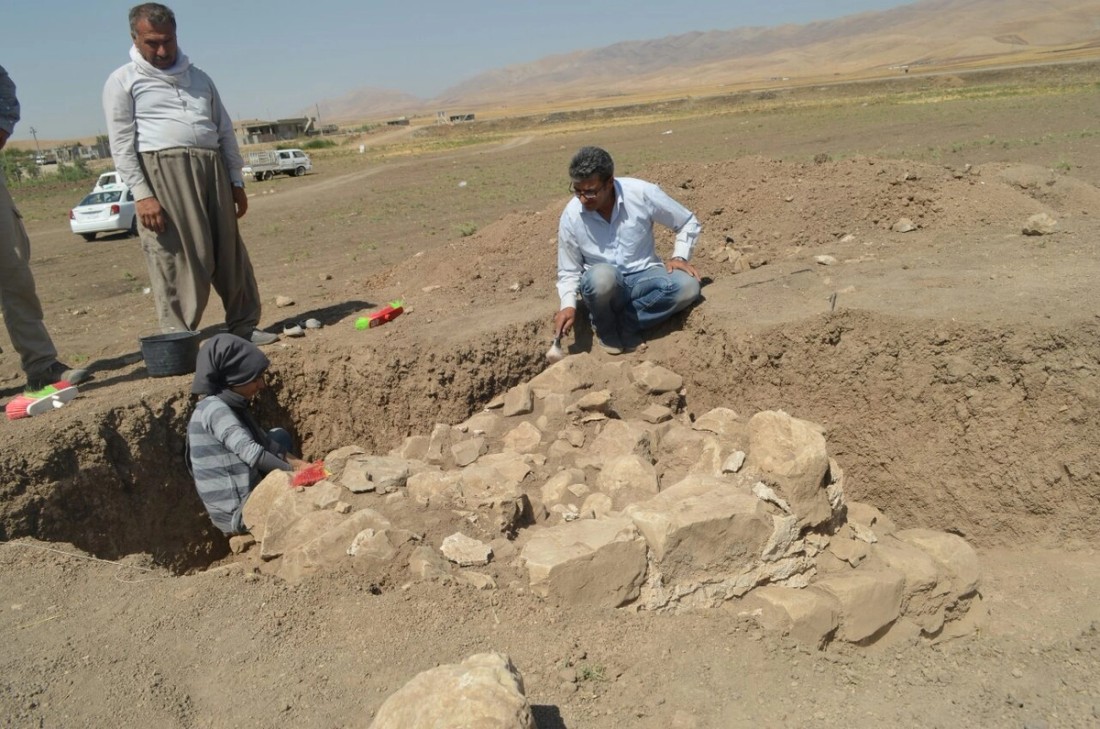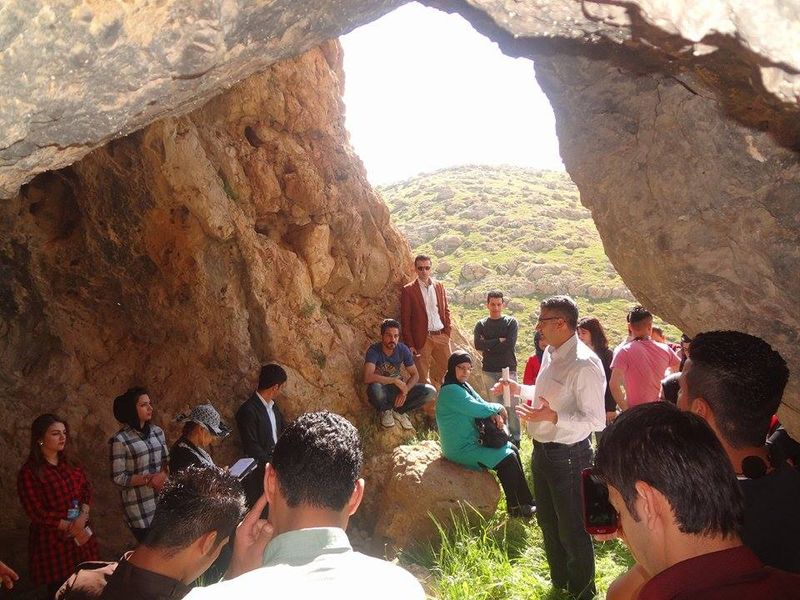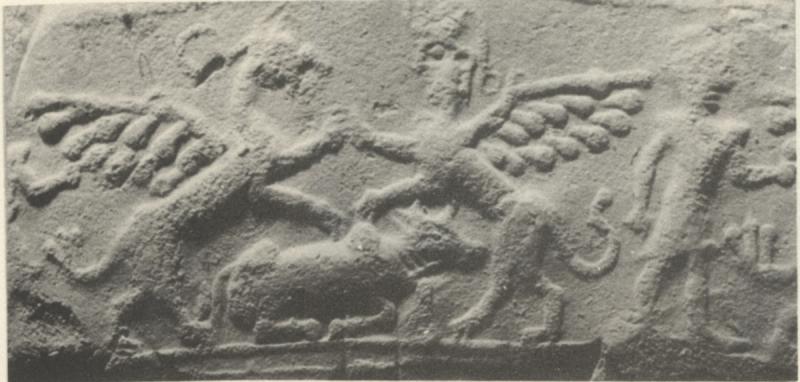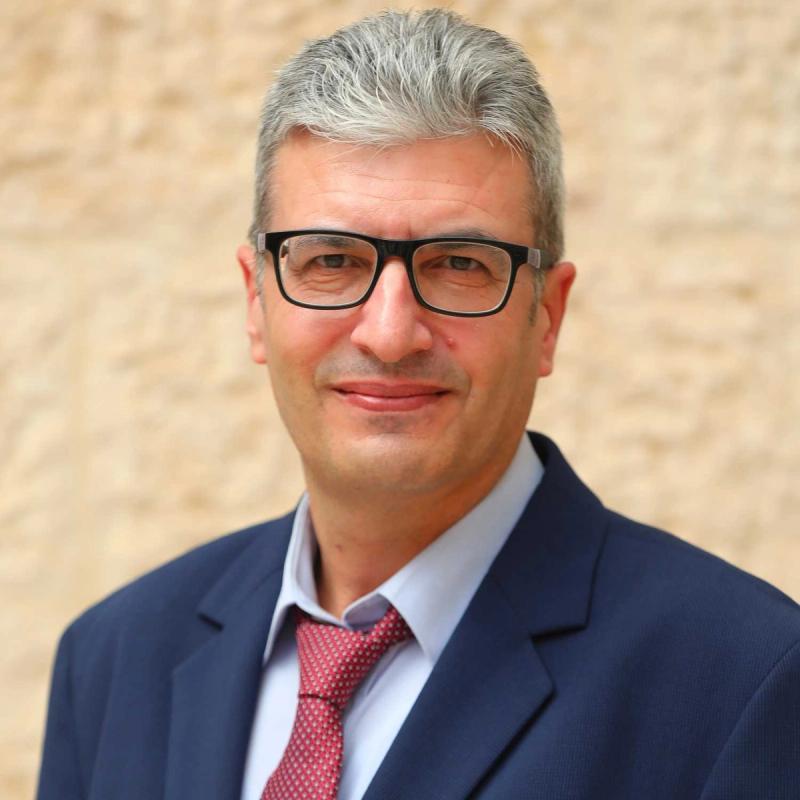The Archaeologist Who Rebuilds Identity from Ruins

A Columbia Global Emerging Scholar studies ancient hybrid creatures, protecting our shared history.
Eight months ago, Dr. Nedal Darwich, an archaeologist living in London, received a call: his village in northeastern Syria had been bombed. A neighbor was dead. At that moment, Darwich had been studying 3,500-year-old seal impressions from the same region—artifacts etched with hybrid beings: creatures with wings, horns, human faces, and divine purpose.
The timing felt cruelly symbolic. The beings in his research—bull-men, eagle-lions, two-headed griffins—once served to protect cities and bring divine order. Now, as violence threatened his own people, Darwich saw in them something more: the resilience to survive fragmentation.
Born in Syria’s Kurdish region in 1972, Darwich came of age in a society that denied his identity. The Kurdish language was banned. Citizenship was revoked from over 300,000 Kurds. Various political campaigns tried to overwrite his community’s presence. “Erasure isn’t only about violence,” he says. “It’s also about silence.”
And yet Darwich’s life has been one long act of reclamation. After earning a history degree in Damascus, he moved to Germany, learned the language, and completed a PhD on divine hybrid figures in Near Eastern art. In 2010, he returned to Syria to teach—only to have to leave again in 2012 as war escalated. Since then, he has lived in academic exile.

The Columbia Global Emerging Scholars Fellowship, supported by the Mellon Foundation, is helping change that. In 2024, Darwich was selected as a fellow, which has given him the support to focus fully on completing a long-planned book project. Fellows are offered work space at the host center, a stipend, mentorship by esteemed Columbia faculty, and training.
His project, years in the making, is among the most detailed iconographic studies of its kind. Darwich has compiled a database of more than 800 Late Bronze Age seal impressions from Syria and Upper Mesopotamia. Through close study, he’s uncovering how the same hybrid figures evolved across cultures and religions. One might represent fertility in one kingdom and cosmic order in another.
“They adapted symbols to express different truths,” Darwich explains. “That flexibility is a kind of strength.”

His own path echoes that insight. When he taught in Kurdish for the first time—his native language—he had to buy a dictionary. The academic vocabulary had never been accessible to him. “It was like translating myself back into myself,” he says.
His work at Columbia is supported by faculty mentors who recognize the urgency and originality of his contribution to the field.
"When talking with Nedal and when reading his work, I have been impressed by the analytical thoroughness of his scholarship, his ability to collect a formidable amount of data, and his systematic approach to the evidence. Above all, I admire Nedal’s determination, perseverance, and good humor. The Syrian and Mesopotamian seals Nedal has been working on are relevant well beyond the boundaries of antiquity."
Francesco de Angelis, Professor of Art History and Archaeology, Columbia University
Today, Darwich lives between London and Amman, managing visa restrictions and a long-distance life. His parents remain in Syria, in a village where water is scarce and armed groups are a constant threat. Though he holds onto hope of returning, his mission remains clear: to preserve knowledge that may soon be all that’s left of a fragile, ancient past.
Like the hybrid beings he studies, Darwich exists across boundaries—between past and present, loss and discovery. His work is a reminder that history, once lost, cannot be replaced. But when protected, it has the power to protect us in return.

Global Voices: Scholars Transforming Boundaries
Nedal Darwich is a 2024-2025 Columbia Global Emerging Scholar. This profile is part of "Global Voices: Scholars Transforming Boundaries," a series highlighting the journeys and impacts of alumni and current recipients of the Columbia Global Scholars programs.
Support for the Columbia Global Emerging Scholar Program is provided by the Mellon Foundation.